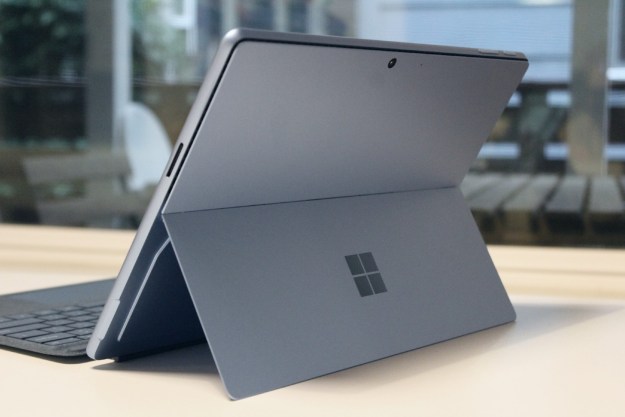
Netbooks are widely viewed as the one market segment in the personal computer industry with grown potential in the current tough economic climate. Although some reports show consumer satisfaction with small, low-powered notebook PCs isn’t all that great, there’s no denying that inexpensive, highly-portable computers that can handle basic communications and Internet browsing tasks have a place in the cash-strapped budgets of many consumers. To that end, Microsoft is currently trumpeting (in its Windows Team blog) industry reports that have some 96 percent of netbook PCs sold during February 2009 run Windows, arguing that Windows makes for a better experience than competing operating systems—especially Linux, which was viewed as possible heavy competition in the netbook arena when the segment began to take off a year ago.
“Some in the industry viewed low-cost netbook PCs as a new challenge for Microsoft and an opportunity for Linux to make inroads in the consumer market,” wrote Microsoft’s Brandon LeBlanc in the blog post. “Some believed consumers wouldn’t want or need their netbook PC to be a full-featured PC. In fact, the exact opposite turned out to be true—a number of analysts and researchers following the space see ample evidence indicating customers really do want netbook PCs to work like their larger brethren—and that the way the vast majority of consumers make that happen is by buying a netbook PC with Windows.”
There is some irony that netbook PCs—which typically sport 512 MB to 1 GB of RAM, 8 to 10-inch screens, 1.6 GHz Atom processors, relatively underpowered integrated graphics controllers, and limited storage—typical run Windows XP, an operating system Microsoft has been trying to phase out for years now. (In fact, PC vendors had to pressure Microsoft to extend XP’s availability because Microsoft’s current flagship operating system, Windows Vista, is too bulky for netbook hardware.) Microsoft is scheduled to cancel mainstream support for Windows XP in a week. However, there is no denying that Linux-based netbooks have failed to catch fire in the consumer marketplace…and, so far at least, Apple has deigned to stay out of the low-margin netbook arena entirely.
Future netbooks—perhaps equipped with Nvidia’s Ion graphics chipset—will sport more memory and improved hardware which will likely enable some units to support Microsoft’s forthcoming Windows 7. In the meantime, Nvidia’s Ion platform has been Vista-certified, meaning some netbooks might even come to market running Vista.
Editors' Recommendations
- Microsoft finally kills this legacy Windows app — for good this time
- Microsoft finds a sneaky way to slip more ads into Windows
- Microsoft just discovered the next big evolution in displays
- Microsoft may fix the most frustrating thing about Windows updates
- Intel and Microsoft just announced a huge collaboration


